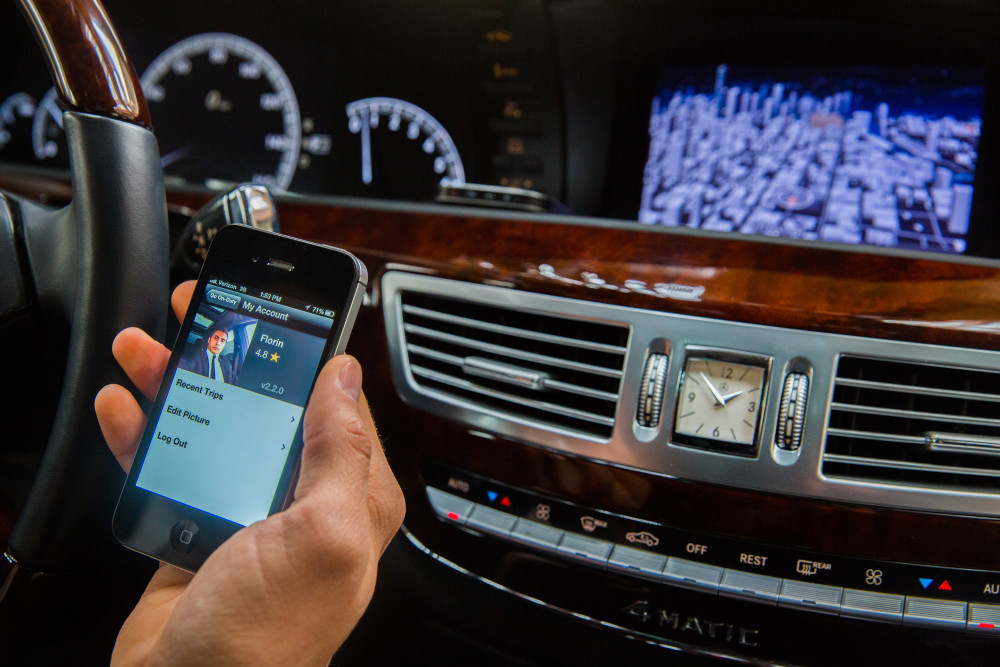By Tracey Lien and Andrea Chang
Los Angeles Times.
SAN FRANCISCO
The popular ride-hailing app Uber is now worth $40 billion, making it by far the most valuable technology start-up in the country.
The new valuation is based on a $1.2-billion private investment announced Thursday, and it more than doubles the company’s June valuation of $17 billion.
Uber is worth more than LinkedIn ($27 billion), Twitter ($24 billion) and Netflix ($21 billion).
The Silicon Valley darling’s rise comes despite complaints from riders, accusations of a sexist culture and vitriol from the taxi industry. Investors and analysts believe the company, which connects drivers and passengers through smartphones, has the potential to upend the transportation industry by rendering car ownership unnecessary for millions of people.
Uber has expanded from 60 cities in 21 countries a year ago to 250 cities in 50 countries today. And unlike many online start-ups, Uber’s business model started spinning off money immediately.
“They have real revenue,” said Julie Ask, a Forrester Research analyst. “They’re taking money away from other industries like parking, from people who own cars, from insurance and registration.”
At first glance, Uber’s valuation might seem excessive compared with other companies in the $40-billion zone, such as Time Warner Cable and Delta Air Lines.
But those companies carry big hard assets on their balance sheets, huge numbers of employees and relatively thin profit margins.
Uber, by contrast, has relatively low overhead. Most of the people “working” for the company are drivers on contracts, not direct employees on payroll. Uber is more of a software company than a transportation company, taking a percentage of each transaction between driver and passenger.
The profit margins are expected to be high, more in line with Internet companies such as Salesforce.com and LinkedIn.
Uber’s on-demand app model also scales easily, and indeed, the company said it would use its new funds to expand its footprint.
Chief Executive Travis Kalanick wrote in a blog post that the new investments — the company did not identify the source — will enable the company to generate more than a million jobs worldwide next year and further invest in its growing network, particularly in the Asia Pacific region.
“Millions of people may decide that they no longer need to own a car because using Uber will be cheaper than owning one,” Kalanick said. “Parking could become less strained in our biggest cities, and city congestion may actually start to ease.”
Thilo Koslowski, vice president and automotive practice leader at Gartner, said although there’s a lot of excitement surrounding Uber, the company should be vigilant about protecting its turf.
“What I’m struggling with is the belief that one company can own this,” he said. “The model Uber is using isn’t that difficult to crack. It’s basically being a matchmaker. … I believe that a company like Facebook could get in that space because they have a lot of people that are connected.”
While Uber has been a hit with riders, the company has faced significant pushback from the taxi cab industry and state and federal regulators.
Still, Uber is ahead of the competition, racing past established car rental services and other ride-sharing upstarts.
Hertz, which operates a car rental service in 145 countries and has been around for nearly a century, has a market capitalization of $11 billion — about a fourth of Uber’s. Lyft, Uber’s biggest rival, is worth an estimated $700 million.
Although Lyft and other rival apps, including Sidecar, offer essentially the same service, Uber got out ahead with a slick marketing approach that made hailing a ride seem cool. Although competitors are emerging around the globe, Uber is way out front: As of May, Uber’s revenue was 12 times that of Lyft’s.
“The difference is Uber really mastered two things: It focused on getting consumers to understand what the company is about, and it made itself attractive to potential drivers,” Ask said. “It established itself as a household name, and that has paid off.”
Uber’s ease of use, wide availability of cars and relatively low prices have made it indispensable to riders.
“I use it whenever I can,” said Adam Stingemore, who works in public policy at nonprofit firm Standards Australia. “One app, no currency issues, no hassles. Just easy. It’s also often cheaper.”
Drivers, who use their own cars, like the service because they essentially have no boss, and can work as much or as little as they want.
But the road hasn’t been without bumps: Uber’s latest financing round comes on the heels of an especially brutal rash of bad publicity for the San Francisco company.
Last month a report quoted Emil Michael, Uber’s senior vice president of business, saying the company was considering hiring people to spy on reporters who wrote unfavorably about Uber. In particular, Michael suggested digging up dirt on Sarah Lacy, the founder and editor in chief of tech blog PandoDaily, who had recently written several stories in which she blasted Uber’s misogynistic culture.
Rumors of Uber’s “brogrammer” ways have long dogged the company.
In an interview with GQ this year, Kalanick gloated about how the app has helped him land women.
Several women have accused Uber drivers of sexual assault, with riders in Virginia, Washington D.C. and Chicago filing complaints and pressing charges.
The company has also been criticized for not being more sensitive to rider complaints, including its controversial “surge pricing,” when prices skyrocket during peak hours.
On Thursday Kalanick vaguely acknowledged “significant growing pains.”
Investors and riders have largely shrugged off Uber’s reputation. “Even if it’s bad press, they’re raising awareness of what Uber is among the average American audience,” Ask said.
With an influx of new cash, Uber will be well-positioned to take on detractors.
“If you look at some of the battles they’ve won, even locally in the Bay Area where UberX couldn’t previously pick people up from the airport and now they can, they’re winning,” Ask said.














































































































































































































































































































































































